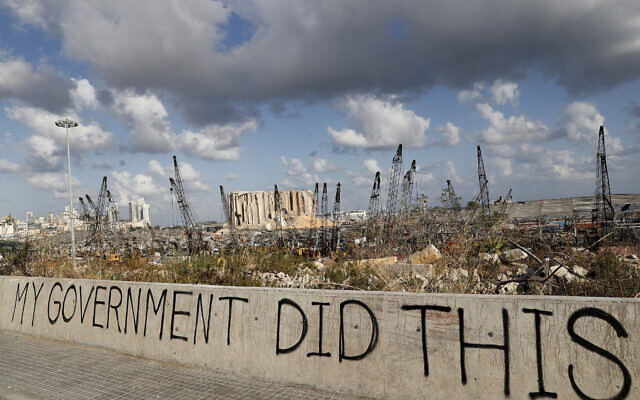Lebanon’s Prime Minister Hassan Diab and the country’s entire government have resigned less than a week after a massive explosion in Beirut killed more than 160 people and sparked days of violent protests.
Prime Minister Hassan Diab addressed the nation, announcing his resignation and that of his government in the wake of the blast, which he called a “disaster beyond measure.”
In a brief televised speech, Mr Diab said he is taking “a step back” so he can stand with the people “and fight the battle for change alongside them”.
“I declare today the resignation of this government. We are with the people in calling for trying those responsible for this crime. May God protect Lebanon.”
Prime Minister Hassan Diab
We have fought valiantly and with dignity,” he added, referring to members of his cabinet. “Between us and change is big powerful barrier.”
Diab also criticized Lebanon’s ruling political elite for encouraging what he called “an apparatus of corruption bigger than the state.”
He compared Tuesday’s explosion to an “earthquake that rocked the country” prompting his government to resign. Three cabinet ministers had already quit, along with seven members of parliament. Mr Diab’s cabinet now assumes a caretaker role until a new government is formed.
Demonstrators had demanded political change after an explosion in Beirut killed more than 160 people and injured around 6,000 last week. It is believed the explosion was caused by 2,750 tonnes of ammonium which was left in a warehouse for six years.

An investigation focussing on how the ammonium nitrate came to be stored at the port and why nothing was done about it was launched in the wake of the blast with about 20 people detained including the head of Lebanon’s customs department and his predecessor, as well as the head of the port.
Dozens of people have also been questioned including two former cabinet ministers, according to government officials.
Losses from the explosion are estimated to be between eight to twelve billion euros with nearly 300,000 people homeless in the immediate aftermath. The country is already in its worst economic crisis that has seen millions of jobs lost, people have their salaries cut and savings disappear.
Rima Majed, a professor of sociology at the American University of Beirut said Lebanon is facing a “bleak future” since the political process to appoint a new prime minister and calls for early elections will take weeks to conclude and time is not something that most people in the country can afford right now.
“This is probably the most dangerous moment in the history of this country. Unfortunately the options we have today are very grim.”
Rima Majed
“If there isn’t a serious will from the international community to create serious structural change in this country we are going towards civil war. There is no alternative. It’s very unfortunate to say that in this country we don’t believe there is rock bottom anymore.” He added
Lebanon is tasked with finding its third prime minister in less than a year.



















